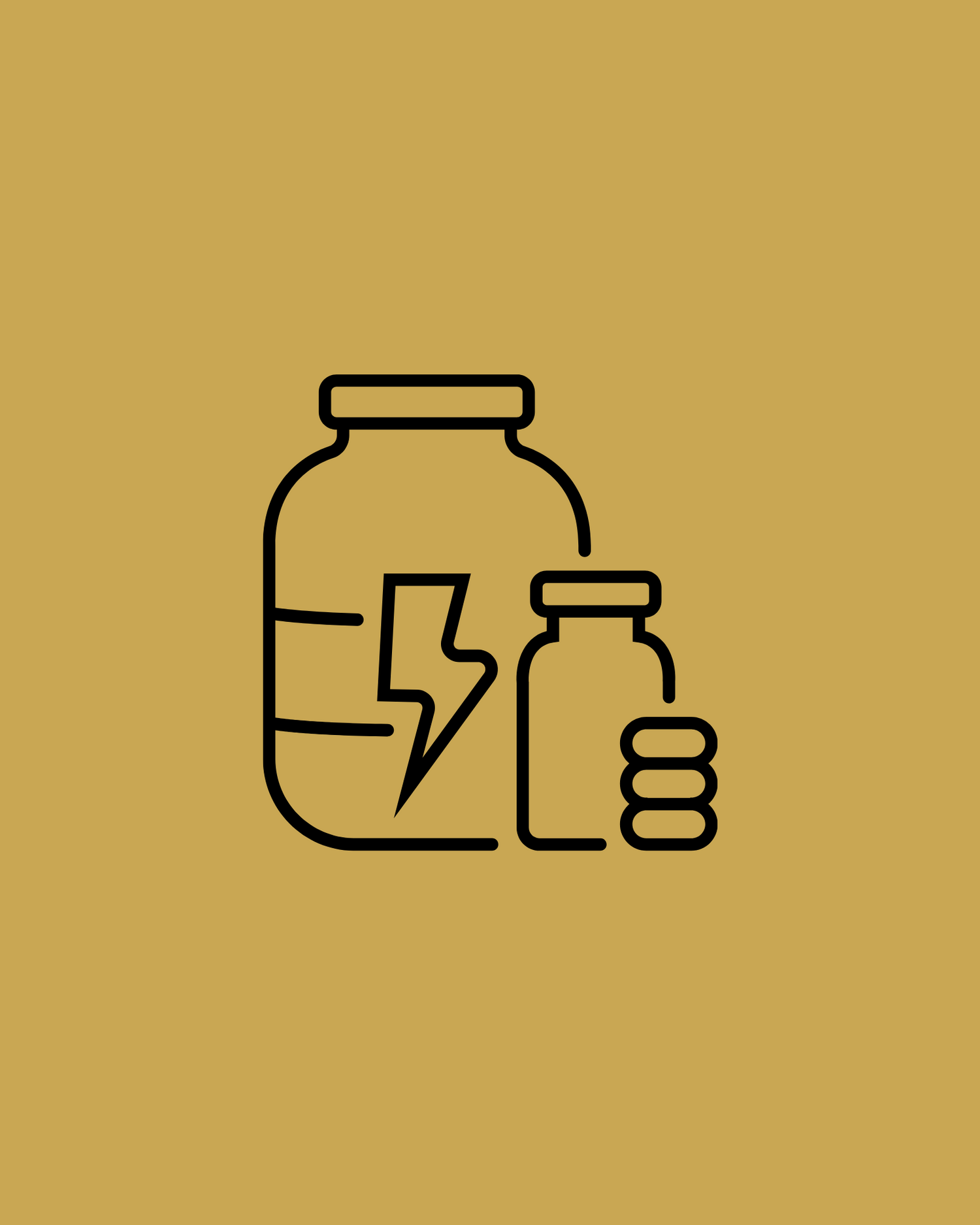Muscle building nutrition – The right basis for growth
Why nutrition is the key to building muscle
Building muscle doesn't just happen in the gym—it starts in the kitchen!
Without proper nutrition, your hard work during training will be largely ineffective.
To build muscle, your body needs the right nutrients to repair and strengthen damaged muscle fibers after training.
Why nutrition is so crucial
-
Calorie surplus
Your body needs more energy than it consumes to build new muscle mass.
-
Building blocks for muscles
Proteins are essential for stimulating muscle protein synthesis.
-
Energy for intensity
Carbohydrates provide the power needed for demanding workouts.
-
Promote recovery
Healthy fats support hormone production and recovery.
Basic Principles of Muscle Building Nutrition

Basic Principles
Calorie Surplus
To build muscle effectively, you should consume about 300-500 calories above your basal metabolic rate daily.
Too much of an excess often leads to fat gain, while too few calories inhibit muscle growth.

Basic Principles
Macronutrient distribution
Protein: 1.6–2.2 g per kg of body weight – important for muscle synthesis
Carbohydrates: 4–6 g per kg of body weight – as an energy source and to replenish glycogen stores
Fats: 0.8–1 g per kg of body weight – essential for hormone production

Basic Principles
Micronutrients
Magnesium: Supports muscle function and recovery
Vitamin D: Important for bone health and muscle strength
Omega-3 fatty acids: Anti-inflammatory and supportive of recovery
Did you know that the right distribution of macronutrients can make the difference between muscle growth and stagnation?
Adequate protein (1.6–2.2 g/kg) promotes muscle protein synthesis, while carbohydrates (4–6 g/kg) replenish your energy reserves and fats (0.8–1 g/kg) stabilize hormone production. The perfect balance for maximum progress!
Scientific Background
-
Muscle Protein Synthesis
To build muscle, the body needs a positive nitrogen balance.
Protein provides the necessary amino acids that are incorporated into the muscles. The body is particularly receptive to protein intake immediately after training.
-
Insulin levels and carbohydrates
Carbohydrates increase insulin levels, which improves the uptake of amino acids into muscle cells. Carbohydrates are particularly useful after training to replenish glycogen stores.
-
Anabolic Window – Myth or Reality?
To build muscle, the body needs a positive nitrogen balance.
Protein provides the necessary amino acids that are incorporated into the muscles. The body is particularly receptive to protein intake immediately after training.
Practical Nutrition Tips

Nutrition Tips
Meal Prep for Muscle Building
Plan your meals in advance: This way, you can avoid calorie deficiencies or unhealthy snacks.
High-quality proteins: meat, fish, tofu, legumes
Carbohydrate sources: rice, potatoes, oatmeal, whole grains
Fat sources: nuts, avocado, olive oil

Nutrition Tips
Supplements
Whey protein: useful for meeting protein needs
Creatine: supports performance and muscle hydration
Omega-3: for general health and recovery
BCAAs: only useful during long training sessions or when protein deficiencies occur
💡 Reality Check
No matter how hard you train, without proper nutrition and planning, you won't achieve your full potential. Muscle building doesn't just happen in the gym, but in the kitchen!
Start planning your food
-
Sample Meal Plan for Muscle Building
Breakfast: Oatmeal with cottage cheese, berries, and nuts
Lunch: Brown rice with chicken breast and broccoli
Pre-workout snack: Banana with peanut butter
Post-workout shake: Whey protein with dates
Dinner: Salmon with sweet potatoes and green vegetables
Snack: Greek yogurt with honey. -
Not quite your taste?
You can also have your own personalized meal plan created.

Common mistakes when building muscle
❌ Insufficient protein intake: Muscle loss instead of building
❌ Calorie deficiency: No progress despite hard training
❌ Wrong timing: Eating only once a day doesn't do much good
❌ Overvaluing supplements: Don't expect miracles – nutrition remains the foundation
Conclusion
Nutrition isn't a dogma or a short-term diet, but a lifelong decision for health and well-being.
Realize that the right diet can positively change your life – and be ready to take that step.
You're here because you want to make a change – and we'll help you!
